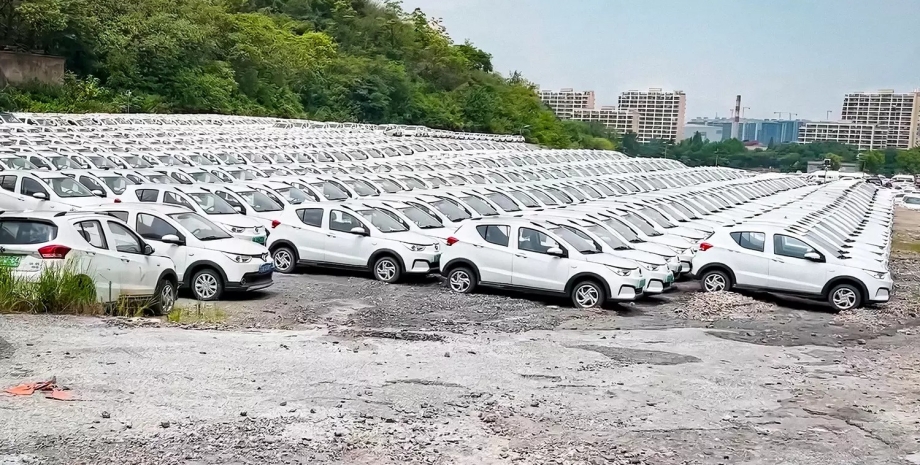Before new tariffs are introduced, Chinese electric cars are conquering the European market
31 July 2024 08:57
Chinese electric vehicle brands reached a record market share in Europe in June 2024, capturing 11% of electric car sales. This happened on the eve of the European Union’s tough new tariffs on imported electric vehicles, which came into effect in early July. Manufacturers were in a hurry to fill dealerships before the new duties were introduced. Bloomberg writes about it, "Komersant Ukrainian" reports
The leader among Chinese brands was SAIC Motor Corporation, which massively supplied its MG4 model to European dealers. According to analyst Dataforce, cars registered before 5 July could be sold to customers without additional duties on imported electric vehicles.
In total, Chinese brands registered more than 23,000 electric vehicles in Europe in June, a record high. This is 72% more than in May, which is double the overall growth in EV registrations in Europe during this period. The new EU tariffs also apply to imported Chinese-made electric vehicles from Western manufacturers such as Volvo Car AB, BMW AG and Tesla Inc.
The biggest jump in imports of Chinese brands came from state-owned SAIC, but about 40% of the MG4s registered in June were self-registrations by dealers, which is not a sign of healthy growth, according to Dataforce’s Gabriel Juhas. The company is offering generous leasing terms, including a two-for-one offer for MG4s in Germany, where EV sales have slowed.
At the same time, BYD Co. the world’s largest manufacturer of hybrid and electric vehicles, has shown signs of steady progress. A marketing campaign focused on the Euro 2024 football tournament in Germany resonated with consumers, according to Dataforce analyst Julian Litzinger.
Another factor that influenced the European EV market in June was the introduction of incentives in Italy, which led to a doubling of EV sales in the country compared to last year. About €200 million in subsidies for new electric vehicles were exhausted in less than nine hours.
European policymakers are trying to find a balance between facilitating access to less expensive Chinese electric vehicles, which will help achieve sustainable development goals, and protecting the traditional automotive industry in a difficult economic environment. Germany, for example, is struggling to achieve significant growth, making more expensive electric vehicles from BMW, Volkswagen AG and Mercedes-Benz Group AG less affordable for consumers.
European automakers are also joining forces with Chinese partners. Stellantis announced the start of deliveries of electric vehicles from China as part of a joint venture with Zhejiang Leapmotor Technology Co. The joint venture has already started assembling pre-production electric vehicles at Stellantis’ plant in Poland.
Overall, June was the third best month for EV sales with 208,872 registrations in the region, according to the European Automobile Manufacturers Association, behind only December 2022 and March 2023.









